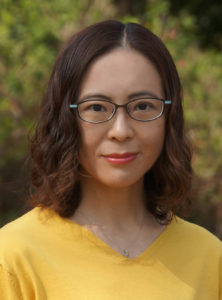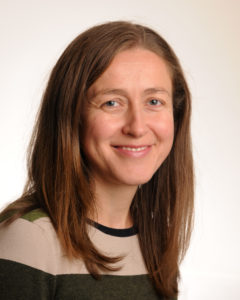Welcome to this month’s edition of Reviewer Spotlight! To further thank and recognise the support from our excellent reviewer community, we are highlighting reviewers who have provided exceptional support to the journal over the past year.
This month, we’ll be highlighting Diego Andrada, Marina Kuimova, Sayaka Uchida and Kjell Jorner. We asked our reviewers a few questions about what they enjoy about reviewing, and their thoughts on how to provide a useful review.
What do you enjoy most about reviewing?
Marina Kuimova: I enjoy having a ‘preview’ of exciting results before they are widely available! It’s particularly exciting to review a good paper in my direct field of expertise – my goal as a reviewer is to assist the authors in making their work better by spotting something they may have overlooked.
Diego Andrada: I enjoy thoroughly reading high quality work as well as spending time learning/reflecting about new chemistry, and the ways to communicate it. Although a (small) contribution, the opportunity to discuss one to one with authors is priceless.
Kjell Jorner: Reviewing is a very good opportunity for me to learn about the latest and most exciting new developments in my field. It is also one of few opportunities nowadays to really read a paper in detail from start to finish and think about it deeply. The ultimate hallmark of a positive review process for me is when the manuscript is improved by collaborative effort of authors and reviewers. It is heartwarming to see authors acknowledge the contribution of reviewers when posting about their paper on Twitter.
What encouraged you to review for Chemical Science?
Sayaka Uchida: Chemists usually submit their best papers to Chemical Science, and reviewers are privileged to be the first reader of those high-quality papers. Besides, I review papers because other chemists will review mine, so I also take it as a responsibility.
Marina Kuimova: I like publishing my work in Chem Sci – I believe it’s home to high quality research with a broad readership. It is a pleasure to act as a reviewer for a journal where I publish my own research, and part of our duty as authors to give something back to the community, by ensuring the journal maintains its high standards.
Are there any steps that reviewers can undertake to improve the quality of their review?
Diego Andrada: Be constructive! You might have a different opinion on the data/analysis. The importance is to clearly state your own arguments. If they turn out to be meaningful, the quality of the manuscript will definitely improve, and consequently your own way of conducting reviews will improve.
What advice would you give a first-time reviewer to maximise the chances of successful peer review?
Kjell Jorner: Employ a constructive mindset where you try to focus on the positive value of the scientific ideas and the results. One can always find problems with a paper, but there are often constructive suggestions which can resolve these problems and improve the paper. Keep a respectful and balanced tone where you also highlight the positive aspect of the paper as well as required revisions. Read the paper multiple times, at least twice and on different days. When making requests for revisions, consider the costs in terms of time and money in relation to what the value of the additions.
What has been your biggest learning point from reviewing?
Sayaka Uchida: Self-reflection and critical thinking. How I should improve to write high-quality papers with novel and clear messages, logical results and discussion, neat figures, concise conclusions, etc..
How do you find that Chemical Science has contributed to your research field?
Marina Kuimova: It is often hard to strike a balance between impact and reaching the right audience when publishing your papers. I believe Chem Sci is one of the journals that maintains this balance well, for chemical sciences research. I think Chem Sci provides a wonderful forum for multidisciplinary research in Chemistry (broadly defined!) and comes with a high impact, as a bonus. I remember the launch of Chem Sci when I was starting out as an independent group leader, and I was very happy that one of my first independent papers was published there and highlighted on the inside cover!
Tune in next month to meet our next group of #ChemSciReviewers!
Keep up to date on Peer Review Week 2021 on Twitter by following #PeerReviewWeek21 and #IdentityInPeerReview.
If you want to learn more about how we support our reviewers, check out our Reviewer Hub.
Interested in joining our ever-growing reviewer community? Send us your CV and a completed Reviewer Application Form to becomeareviewer@rsc.org.














